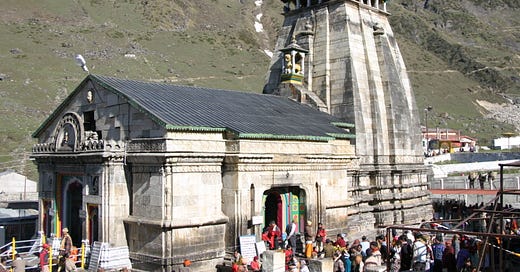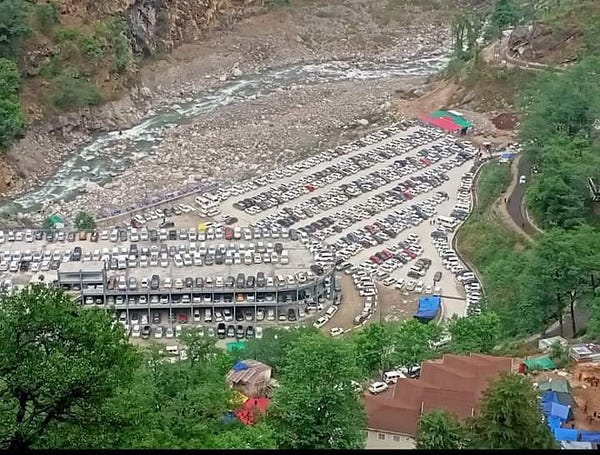This is the first, short, step towards answering the following question:
how do we live as inhabitants of this planet along with many many other beings? What institutions do we need to create to house our planetary selves?
We have never had to answer this question seriously before this century. Yes, many traditions, especially indigenous ones, have philosophies of respect when it comes to the non-human world, but it’s never been the case that our lives are so intertwined with those of so many other species in so many places.
Just as living in cities prompted us to cultivate civic virtues at scale - tolerance, for example - we will need to cultivate new virtues at a planetary scale. Restraint is an example: we have the power to eat up the resources of the earth but will we have the restraint to not do so? This new virtue only appears to be negative, i.e., a virtue that reduces our options - like telling someone to stop eating beef because of the emissions from cows. Just as the civic virtue of tolerance helps us live alongside strangers and by doing so, we enable new institutions such movie theaters that greatly enhance our lives, the virtue of restraint will help us create new planetary institutions.
Or so I think.
Nehru once said at the scene of an enormous dam:
Dams are the temples of modern India.
Back then we were building temples one by one in a few chosen spots. Being a progressive country, we have embraced decentralization in everything, including temple construction. Kedarnath 👆🏾 is one of the holiest of Hindu temple sites, way up in the Himalayas (~ 12000 feet), and many modern temples celebrate its holiness. Spot the temples in this picture 👇🏾
So many four wheeled temples celebrating the glory of the divine…..
I see why capitalism appears to many as a natural force - turn on the machine and parking lots fill up with cars in the remotest of places. In its overflow, capital leaves nothing untouched in its wake - some old bonds are broken and others are transformed beyond recognition.
Restraint is not one of capitalism’s virtues, for it assumes that greed and growth are unbounded; easier to imagine rover lots on Mars than a restrained life here on Earth.
The unstoppable force of capitalist ‘nature’ (which is really capitalist society….) needs to meet an immovable object, something that will tame its growth. There are two options:
Mother nature - i.e., the unleashed planetary furies that couldn’t care less if Amazon promised you a package within two days. Not a happy ending.
Some planetary institution that will broker an equilibrium between the force and the furies. Perhaps a Climate Leviathan.
In the Hobbesian imagination, nature is raw and cruel (should remind you of Tennyson’s famous lines: ‘Nature, red in tooth and claw’
‘Nature shrieking against the divine creed’ is one take on the relationship between humans and the non-human world. There are alternate visions. Traditional Hindus would have known of the awesome powers of nature, they would have hedged their bets by praying to animal, tree and mountain gods while also building safe harbors. But the Himalayan peaks were always present as the background against which we measure our lives. Who knows how many pilgrims died over the centuries on the long trek to Kedarnath from Soneprayag?
Will a Climate Leviathan continue to help us escape the state of nature? Will it be massive feats of geoengineering that a future Nehru will announce as the planetary temples? What planetary contract will form the basis of this new state?










